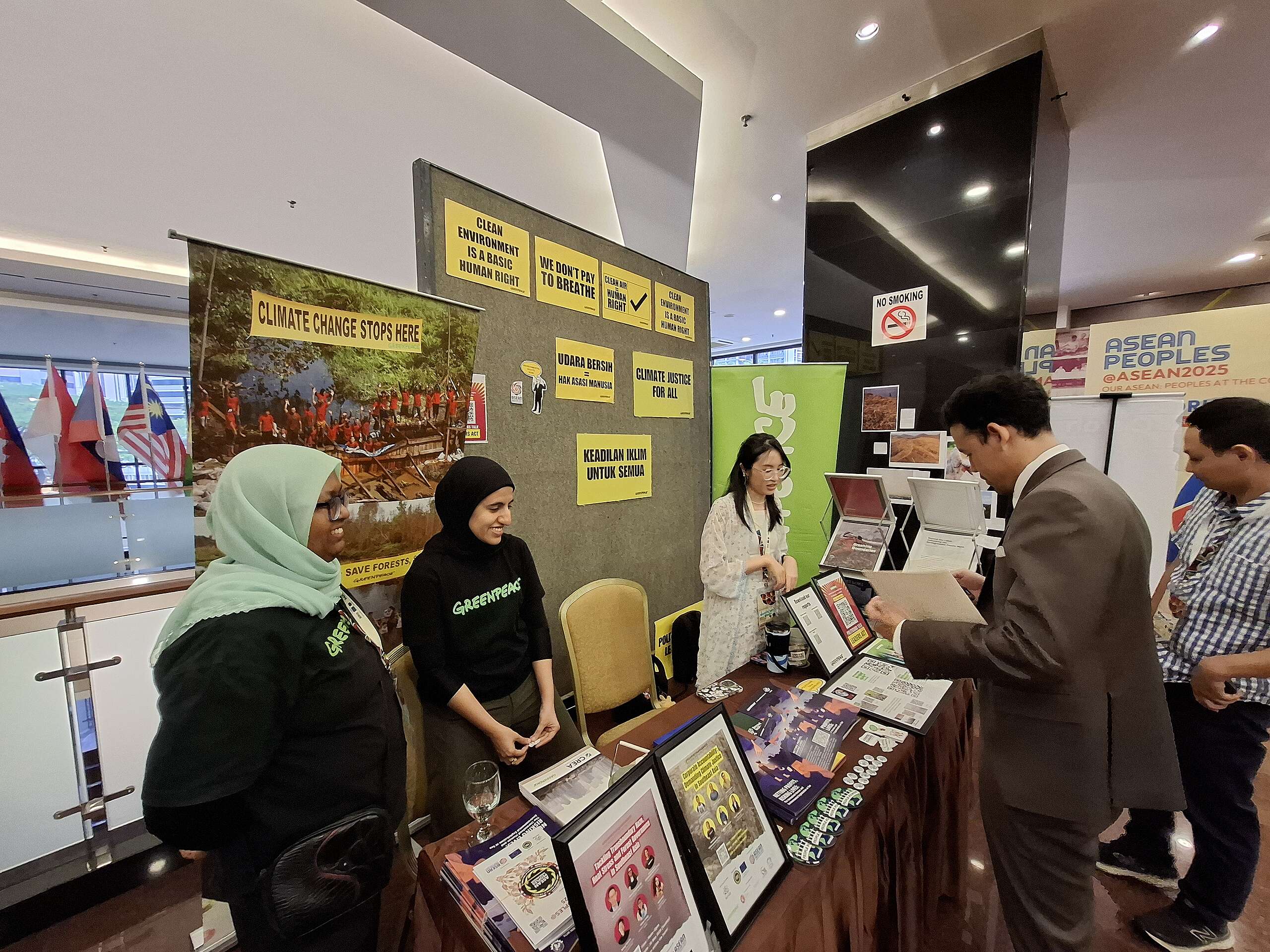November 6, 2019, Bangkok — As members of the Roundtable on Sustainable Palm Oil (RSPO), the world’s largest palm oil certification system, converge in Bangkok for the group’s 17th annual Roundtable (RT), the world is in the midst of a climate, biodiversity and human rights emergency. Global citizens have watched in horror and outrage over the past months as some of the largest remaining forested areas on the planet –– from the Amazon to Indonesia –– have been on fire. And the role of palm oil companies and consumer brands — including many RSPO members — in this crisis is no secret.[1]
Last year, RSPO members approved a new set of Principles and Criteria that align with the global “No Deforestation, No Peat, and No Exploitation” policies of many of its members. Yet the RSPO’s new standard will only be meaningful if it is audited and upheld in a thorough, comprehensive and competent way. A new report “Who Watches the Watchmen 2” released by Grassroots and Environmental Investigation Agency this week, exposes the RSPO’s inability to assure consumers and the public that its members can uphold its standard.[2]
A coalition of NGOs released the following statement,
“As the world faces a climate, deforestation, and human rights crisis, we call on the RSPO and its members to fulfill their promise of sustainability and commitment to ending deforestation, peatland destruction, and violation of human rights in the production and procurement of palm oil amongst its member companies.
“Violations of the RSPO’s standard and procedures remain systemic and widespread, and there is little evidence that RSPO members are truly implementing the Principles & Criteria. To the contrary, research has shown no significant difference between certified and non-certified plantations, and fire, peatland loss and human and labor rights violations have been repeatedly exposed on RSPO certified plantations.[3]
“The planet, affected communities and workers, and global citizens can no longer afford to wait for the RSPO to slowly nudge member companies in the right direction, while allowing them to do continual harm both to the environment and people. To remain relevant in today’s world, the RSPO must urgently strengthen its assurance systems and make the entire process—certification, monitoring, audits, complaints, and enforcement—credible and robust. We call on all RSPO members to take up this call to action with the necessary urgency.”
Signatories:
Environmental Investigation Agency
Friends of the Earth Japan
Grassroots
Greenpeace
HUTAN Group
Japan Tropical Forest Action Network (JATAN)
Organisasi Penguatan dan Pengembangan Usaha-Usaha Kerakyatan (OPPUK)
Rainforest Action Network
SumOfUs
Verité Southeast Asia
Yayasan Pusaka Bentala Rakyat
Kaoem Telapak
IAR Indonesia Foundation (YIARI)
Sarawak Dayak Iban Association (SADIA)
[1] Greenpeace. “Burning Down the House: How Unilever and Other Global Brands Continue to Fuel Indonesia’s Fires.” November 4, 2019.
[2] Grassroots, Environmental Investigation Agency. “ Who Watches the Watchmen 2: The continuing incompetencce of the Roundtable on Sustainable Palm Oil’s assurance systems.” November 2019.
[3] Morgans, C.L. et al. (2018) Evaluating the effectiveness of palm oil certification in delivering multiple sustainability objectives. Environmental Research Letters. 13(6).
Carlson, K.M. et al. (2018) Effect of oil palm sustainability certification on deforestation and fire in Indonesia. PNAS. 115 (1): 121-126.
Nagari Institute, Masyarakat Kehutanan Lestari, and Forest Peoples Programme. “Survey of Human Rights Violations in the Oil Palm Concession Areas of Wilmar International in West Sumatra.” November 4, 2019.
International Labor Rights Forum, OPPUK, and Rainforest Action Network. “The Human Cost of Conflict Palm Oil Revisited: How PepsiCo, Banks, and the Roundtable on Sustainable Palm Oil Perpetuate Indofood’s Worker Exploitation.” November 2017.



